The Best Carrot Planting Companions
The Best Carrot Planting Companions
Carrots are a delicious and nutritious vegetable that can be grown in most gardens. But did you know that there are certain plants that can help carrots grow better? Companion planting is the practice of planting different types of plants together in order to create a mutually beneficial relationship. By planting carrots with the right companion plants, you can improve their growth, flavor, and pest resistance.
In this blog post, we will discuss some of the best carrot planting companions. We will also provide tips on how to plant carrots with these companion plants and how to reap the benefits of companion planting.
Why Companion Plant Carrots?
There are several reasons why you might want to companion plant carrots. First, companion plants can help to improve the soil quality around your carrots. This is important because carrots need loose, well-drained soil in order to grow properly. Companion plants can help to aerate the soil, add organic matter, and suppress weeds.
Second, companion plants can help to deter pests and diseases. Carrots are susceptible to a number of pests, such as carrot flies and root maggots. Companion plants can help to repel these pests by releasing chemicals that they find unpleasant.
Third, companion plants can help to improve the flavor of carrots. Some companion plants, such as chives and mint, have strong flavors that can be transferred to the carrots when they are grown nearby.
What Are the Best Carrot Planting Companions?
There are many different plants that can be grown as carrot companions. Some of the best options include:
- Beans and peas: These legumes fix nitrogen in the soil, which can help to improve the growth of carrots.
- Lettuce: Lettuce helps to suppress weeds and shade the soil, which can help to keep carrot roots cool and prevent them from becoming forked.
- Marigolds: Marigolds are known to repel pests, such as carrot flies and root maggots.
- Onions and garlic: Onions and garlic release chemicals that repel pests and diseases.
- Spinach: Spinach helps to improve the soil quality around carrots and can also help to suppress weeds.
- Tomatoes: Tomatoes can help to shade carrot roots and keep them cool. They can also help to attract beneficial insects, such as ladybugs, which eat pests that can damage carrots.
How to Plant Carrots with Companion Plants
When planting carrots with companion plants, it is important to consider the spacing requirements of each plant. Carrots need about 2 inches of space between each plant, so you will need to adjust the spacing of your companion plants accordingly.
In general, it is a good idea to plant taller companion plants, such as tomatoes and marigolds, on the north or west side of your carrot patch. This will help to shade the carrot roots and keep them cool.
You can also plant shorter companion plants, such as lettuce and spinach, between your carrot rows. This will help to suppress weeds and improve the soil quality around your carrots.
How to Reap the Benefits of Companion Planting
The benefits of companion planting can be seen in a number of ways. First, companion plants can help to improve the growth of your carrots. This is because they can provide nutrients, suppress weeds, and deter pests.
Second, companion plants can help to improve the flavor of your carrots. This is because they can release chemicals that transfer to the carrots when they are grown nearby.
Finally, companion planting can help to increase your yield of carrots. This is because companion plants can help to improve the overall health of your garden and make it more productive.
Conclusion
Companion planting is a great way to improve the growth, flavor, and yield of your carrots. By planting carrots with the right companion plants, you can create a more productive and pest-resistant garden.
If you are new to companion planting, start by choosing a few of the companion plants listed above and plant them with your carrots. You will be surprised at the difference it makes!
Carrot planting companions are a great way to improve the health and productivity of your carrot crop. By planting carrots near compatible plants, you can attract beneficial insects, deter pests, and improve soil health.
Some of the best carrot planting companions include:
- Onions: Onions release a strong scent that repels carrot root fly, a common pest of carrots.
- Lettuce: Lettuce shades the soil around carrots, helping to keep the roots cool and moist.
- Marigolds: Marigolds release a scent that repels nematodes, which can damage carrot roots.
- Peas: Peas fix nitrogen in the soil, which can help to improve the growth of carrots.
- Tomatillos: Tomatillos provide shade for carrots and can help to deter pests.
For more information about carrot planting companions, visit Garden Wiki. This website has a comprehensive list of compatible plants, as well as tips on how to plant and care for carrots.
FAQ of carrot planting companions
Question 1: What are the best companion plants for carrots?
Answer: Carrots get on well with a wide variety of vegetables, including:
- Peas: Peas help to improve the nitrogen levels in the soil, which is beneficial for carrots. They also help to shade the soil, which can help to prevent carrots from bolting.
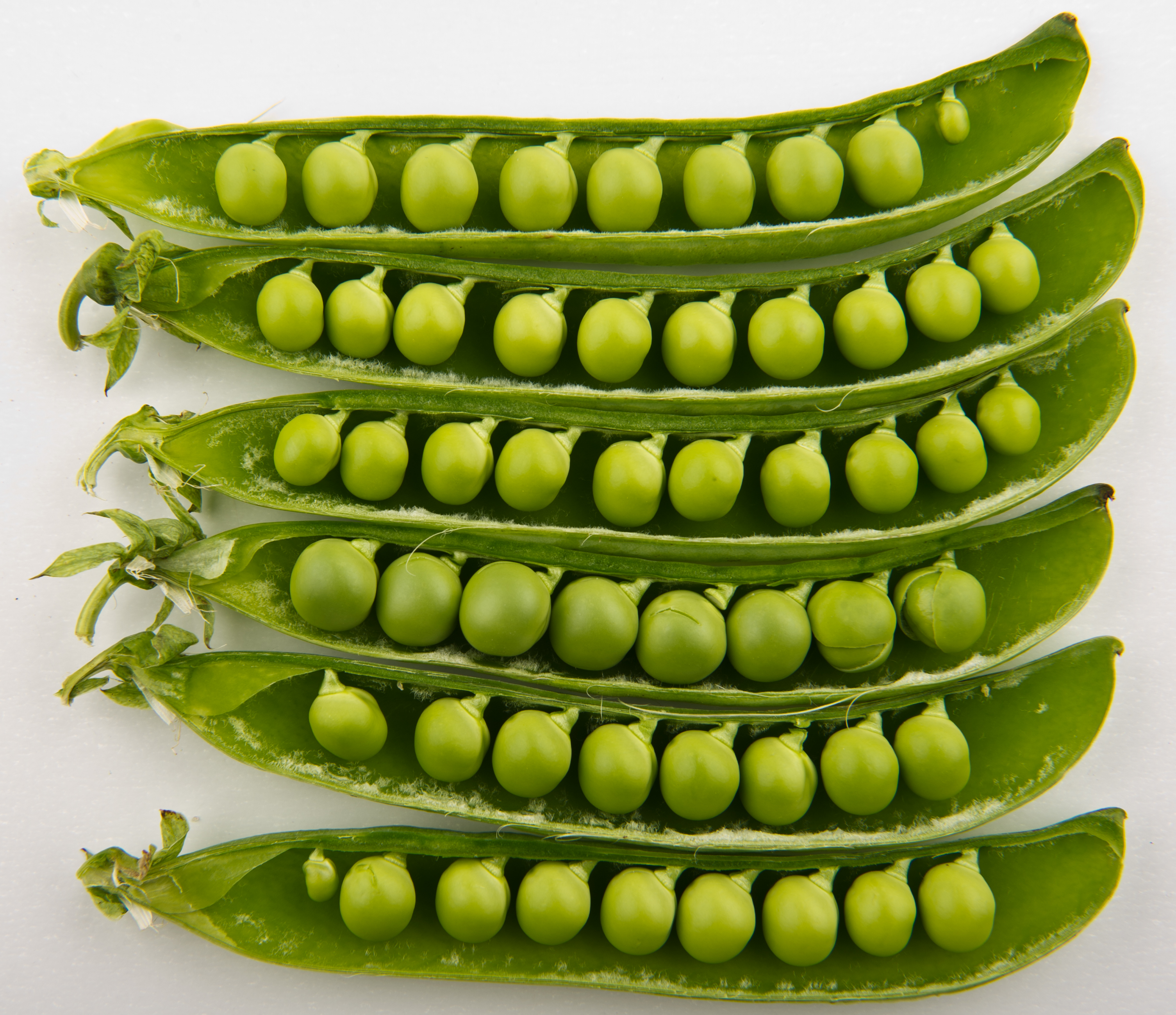
- Lettuce: Lettuce helps to suppress weeds and attract beneficial insects, both of which can benefit carrots.
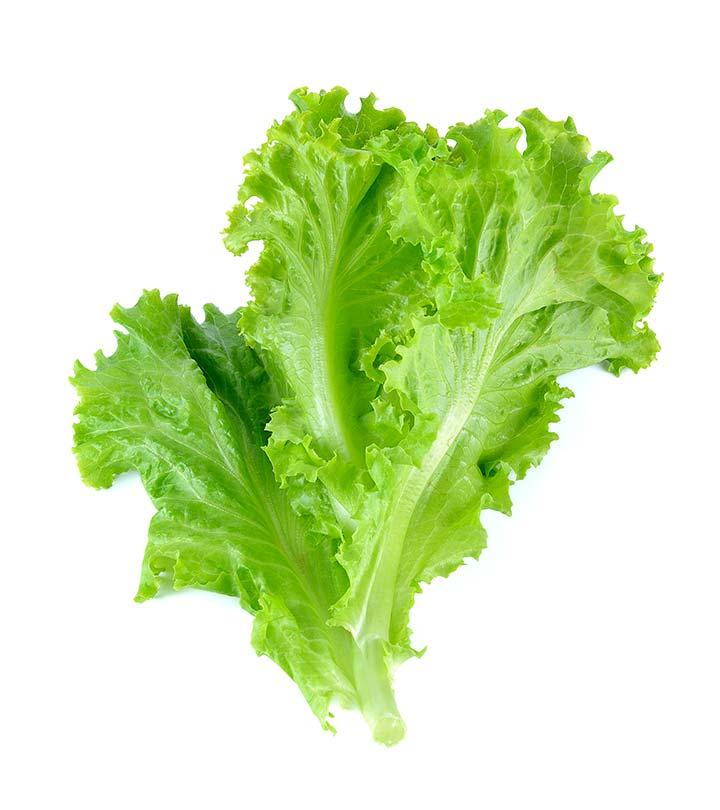
- Rosemary: Rosemary helps to repel pests, such as carrot flies, which can damage carrots.
- Onions: Onions help to repel root-knot nematodes, which can be a problem for carrots.
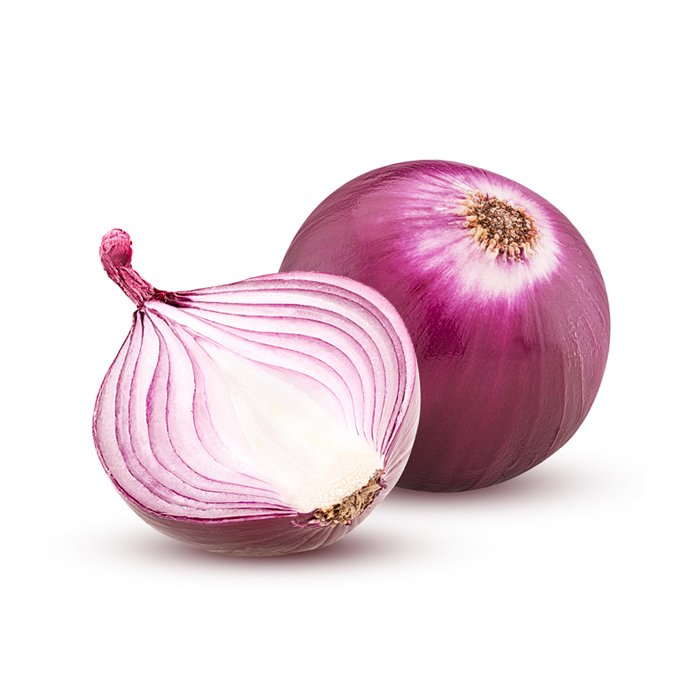
- Tomatoes: Tomatoes help to deter carrot rust flies, which can damage carrots.

Question 2: What are some plants that should not be planted near carrots?
Answer: Some plants that should not be planted near carrots include:
- Cabbage: Cabbage can attract the same pests that carrots attract, such as carrot flies and root-knot nematodes.
- Celery: Celery can compete with carrots for water and nutrients.
- Fennel: Fennel can release a chemical that can stunt the growth of carrots.

- Potatoes: Potatoes can harbor the same diseases that carrots are susceptible to, such as blackleg and potato scab.
- Spinach: Spinach can attract the same pests that carrots attract, such as carrot flies and root-knot nematodes.

Question 3: How far apart should carrots be planted?
Answer: Carrots should be planted about 2 inches apart. This will give them enough space to grow and develop their roots without being crowded.
Question 4: How much sunlight do carrots need?
Answer: Carrots need full sun, at least 6 hours of direct sunlight per day. If they don't get enough sunlight, their roots will be forked and misshapen.
Question 5: How often should carrots be watered?
Answer: Carrots need to be watered regularly, especially during hot, dry weather. Water them deeply so that the water reaches the roots.
Image of carrot planting companions
- Carrots and lettuce: Lettuce helps to suppress weeds and attract beneficial insects, both of which can benefit carrots.
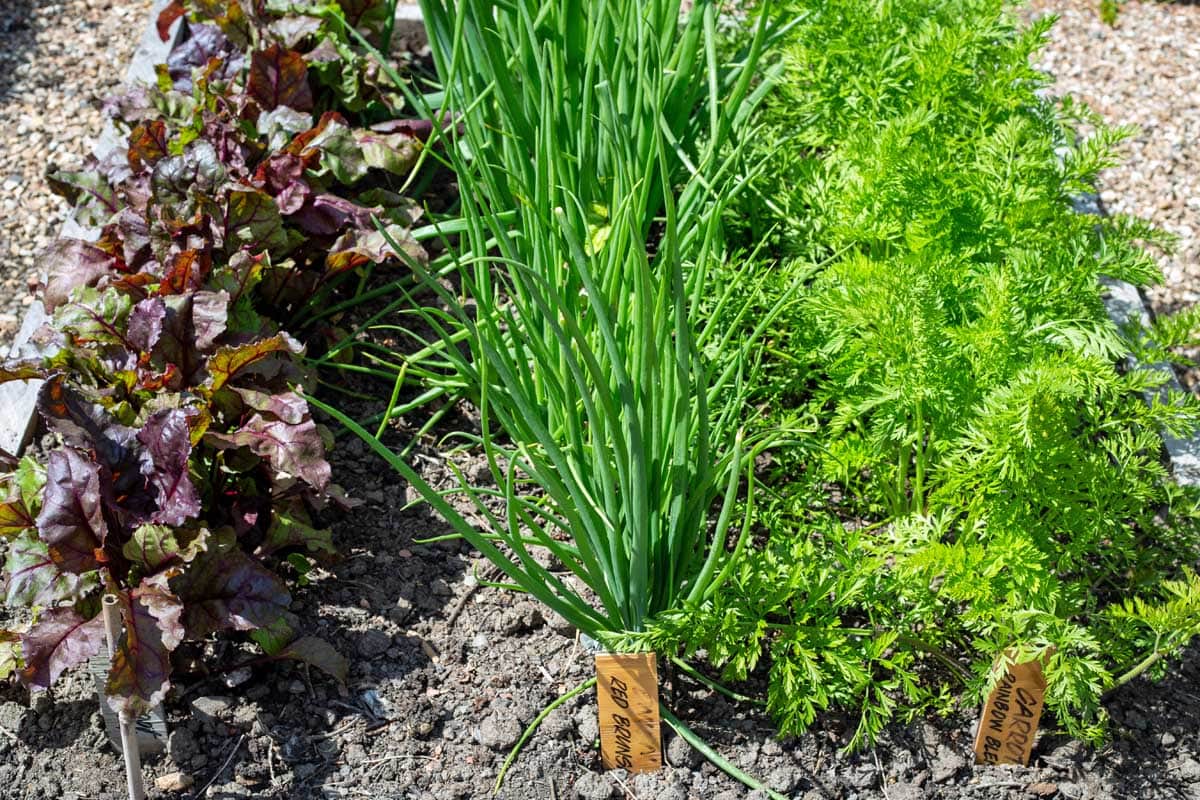
- Carrots and onions: Onions help to repel pests, such as carrot fly, that can damage carrots.

- Carrots and tomatoes: Tomatoes help to deter nematodes, which are a common pest of carrots.
- Carrots and peas: Peas help to improve the nitrogen content of the soil, which can benefit carrots.
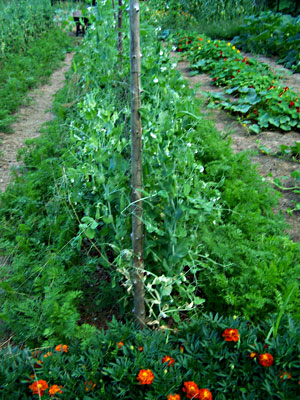
- Carrots and sage: Sage helps to repel carrot fly, and its strong aroma can also help to mask the scent of carrots, making them less attractive to pests.

Post a Comment for "The Best Carrot Planting Companions"